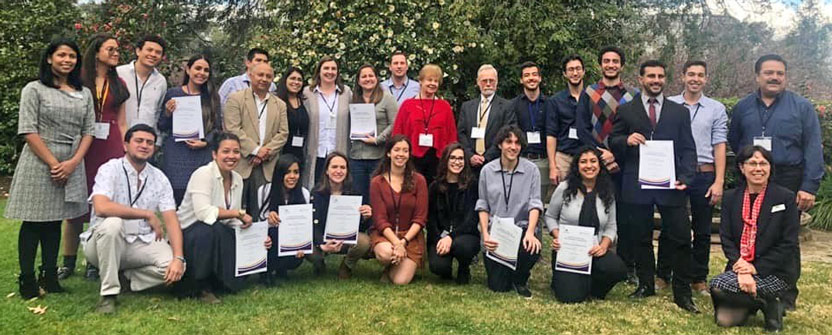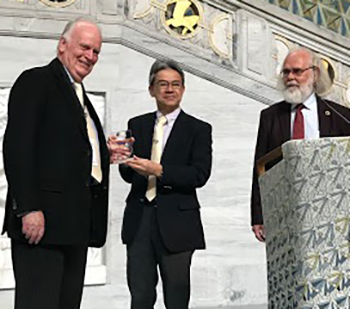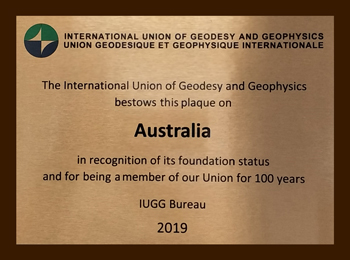Calls for applications for the Australia–India Strategic Research Fund Early- and Mid-Career Researcher Fellowships and the Japan Society for the Promotion of Science Postdoctoral Fellowships are now open. Find out more about these opportunities
After spending eight weeks in Australia undertaking a research project with Australian hosts institutions, this year’s PhD students from the 2019 Australia–Americas PhD Research Internship Program returned to Canberra on 19 September for a debrief session. Twenty-three students from Argentina, Brazil, Colombia and Mexico shared their experiences in working at institutions and laboratories across Australia, the challenges they faced, and the progress and achievements of their research projects. All students were complimentary of the program and many expressed an interest to return to Australia for postdoctoral research.
The students also heard from Academy Fellow Professor Jenny Graves, winner of the 2018 Prime Minister's Prize for Science, who spoke about her recent trip to South America and Mexico which was supported by the Australian Government’s Council on Australia Latin America Relations (COALAR). The COALAR grant was managed by the Academy which, together with the Education and Science Counsellors at the Australian embassies in Mexico and Brazil, coordinated Professor Graves’s lecture tour. Dr Philip Kilby from Data61, an Australian host to a Colombian PhD participant, and the Chief Executive of the Academy, Anna-Maria Arabia, also attended the event to farewell the students, along with representatives of the Department of Education and Academy staff.
The Australia–Americas PhD Research Internship program has been funded by the Australian Government Department of Education since 2017.


Professor John Buckeridge received one of two special awards at the centennial celebrations of the International Union of Biological Sciences (IUBS) General Assembly in August. The IUBS Centenary Award was presented to Professor Buckeridge for his international promotion of biological science.
Professor Buckeridge is an Emeritus Professor at RMIT University in the Earth and Oceanic Systems Group, and a Research Fellow at Museums Victoria, Australia. He was president of IUBS from 2007–09, President Emeritus of the International Society of Zoological Sciences, past member of the Executive Board of the International Council for Science and a member of the Hungarian Academy of Sciences.
Professor Buckeridge represented the Australian Academy of Science as the Australian delegate at the IUBS General Assembly this year. The General Assemblies are held triennially and bring together the delegates from each of the international members of IUBS to discuss international challenges and programs in the biological sciences. IUBS links with the Academy’s National Committee for Ecology, Evolution and Conservation, providing opportunities for Australia to participate in international engagement and discussion on biological sciences.
Professor Zhibin Zhan from the Chinese Academy of Sciences’ Institute of Zoology also received a Centenary Award for his research on biological consequences of climate change.

Academy Fellow Professor Kurt Lambeck represented the Academy and was a speaker at the International Union of Geodesy and Geophysics (IUGG) Centennial Celebration in July at UNESCO’s head office, Paris.
IUGG was founded in Brussels in 1919 to coordinate international research in the geosciences, with Australia one of the nine founding members. IUGG’s activities have been dedicated to advancing, promoting, and communicating knowledge of the Earth system, its space environment, and the dynamical processes causing change. IUGG encourages the application of this knowledge to societal needs, such as mitigation of natural hazards and disaster risk reduction, water security and mineral resources, climate change and environmental preservation.
Professor Lambeck spoke on ‘The Earth from Space’, reviewing the contributions to Earth physics that resulted from the developments in space science and technology.
© 2025 Australian Academy of Science